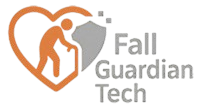For older adults, medications treat illness but can also introduce serious risks—especially to balance and fall prevention. Understanding these risks and adopting safe practices is essential for maintaining independence and well-being. Here’s how to stay safe:
⚠️ 1. Know Your Medication Risks
Medications affect aging bodies differently due to slower metabolism and reduced kidney/liver function. Key risks include:
- Multiple Medications (Polypharmacy)��: Taking 5+ drugs significantly increases fall risk. Interactions can cause dizziness, confusion, or low blood pressure.
- High-Risk Side Effects: Common drug classes and their dangers:
- Sleep Aids (e.g., Benzodiazepines): Drowsiness, dizziness⚠️ .
- Pain Relievers (e.g., Opioids): Confusion, unsteadiness.
- Blood Pressure Drugs (e.g., Diuretics, Beta-blockers): Fatigue, low BP (orthostatic hypotension), increasing fall risk when standing.
- Diabetes Medications (e.g., Insulin): Low blood sugar (weakness, tremors).
- Antihistamines (e.g., Diphenhydramine): Drowsiness, blurred vision.
- Antidepressants/Antipsychotics: Dizziness, low sodium (increasing fall/fracture risk).
��️ 2. Safe Medication Practices
Proactive management reduces harm:
- Review Medications Regularly��: Ask your doctor or pharmacist:
- “Is every drug still necessary?”
- “Can any dose be reduced?”
- “Are there safer alternatives?”.
- Never Share or Use Expired Drugs: Other people’s medications may interact dangerously with yours. Expired drugs lose potency or become toxic.
- Use Pill Organizers & Alarms: Prevents missed doses or accidental double-dosing.
- Stand Up Slowly: After sitting/lying down, pause 1–2 minutes to avoid dizziness from blood pressure drops.
�� 3. Work Closely with Your Healthcare Team
- Bring a Medication List to every appointment, including prescriptions, OTC drugs, and supplements.
- Report New Symptoms Immediately: Dizziness, confusion, or weakness could signal a drug reaction.
- Ask About Non-Drug Options: Physical therapy, diet changes, or exercise may reduce reliance on risky medications.
�� Key Insight: Adults over 65 experience drug reactions 3x more often than younger people. Simple steps like medication reviews and slow movements prevent emergencies.
✍️ Summary Table: High-Risk Medications & Precautions
| Drug Category | Common Examples | Fall Risks | Preventive Steps |
| Blood Pressure Meds | Diuretics, Beta-blockers | Low BP, dizziness when standing | Rise slowly; monitor BP regularly |
| Sleep Aids | Benzodiazepines, Z-drugs | Drowsiness, impaired balance | Use lowest dose; short-term only |
| Pain Relievers | Opioids, NSAIDs | Confusion, unsteadiness | Explore non-drug alternatives |
| Diabetes Meds | Insulin, Sulfonylureas | Low blood sugar, weakness | Consistent meal timing; glucose checks |
| Antidepressants | SSRIs, TCAs | Dizziness, low sodium | Regular blood tests; hydration |
Prioritize safety today: Schedule a medication review with your doctor or pharmacist. A few questions could prevent a life-changing fall. Share this guide to protect someone you love!
ℹ️ For Healthcare Providers: Regular deprescribing initiatives reduce polypharmacy risks. Tools like the **American Geriatrics Society Beers Criteria®** highlight drugs to avoid in seniors.
